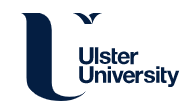
BSc (Hons) in Geography with Education and optional placement year
Ulster University, Belfast
Study Abroad
IELTS
Sign in
Sign Up


Ulster University, Belfast

BSc (Hons) in Geography with Education and optional placement year
Ulster University, Belfast
Degree
Undergraduate
Duration
36
Course Type
With Co-op
Co-op education gives you real-world experience in a job related to your studies.
INR
17.23L
USD 20268
1st Year Tuition Fees
Opening Soon
GBP 27.5